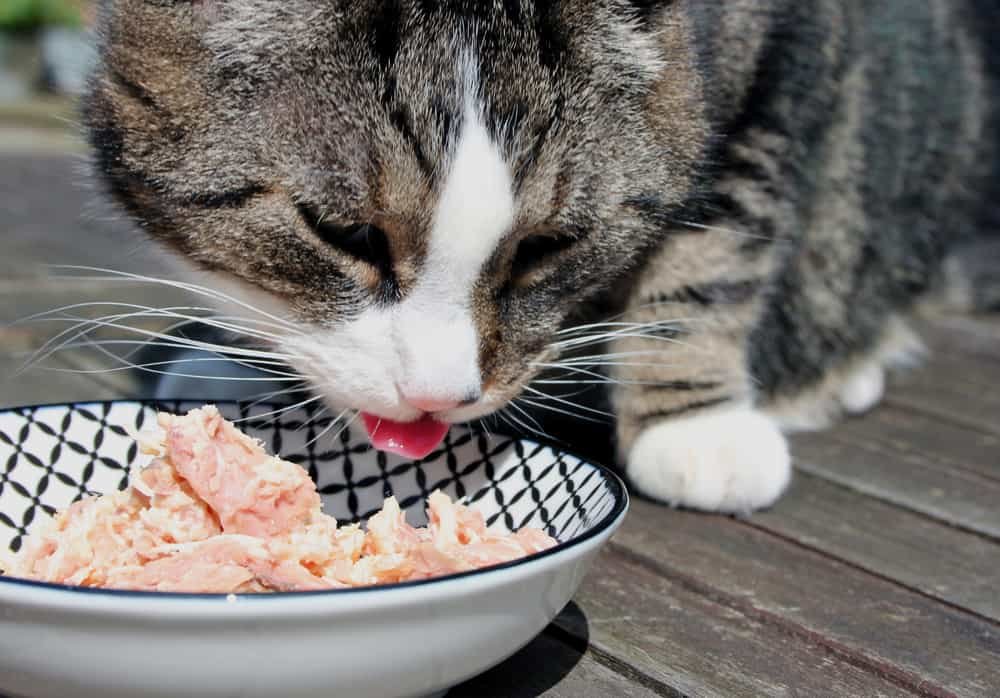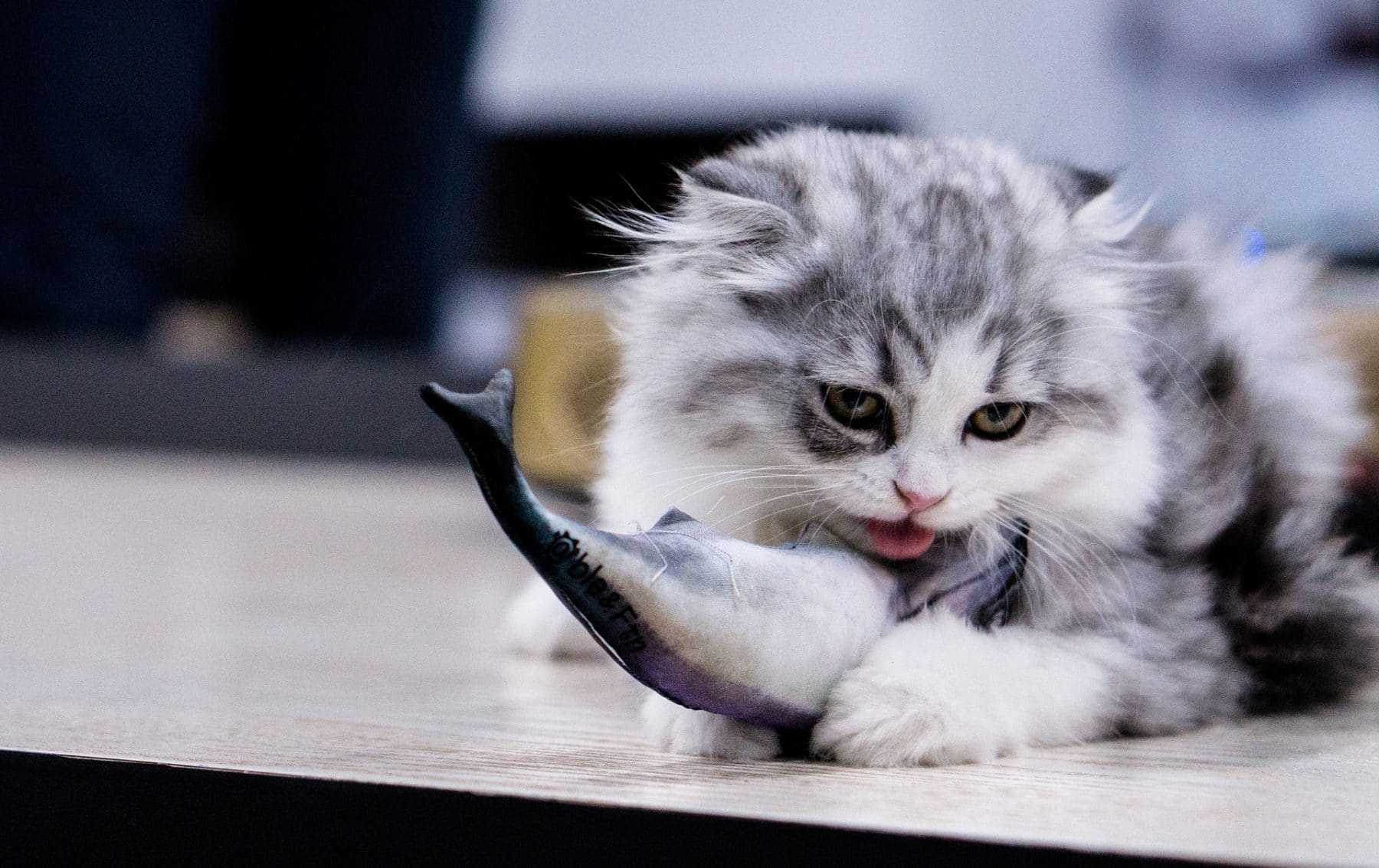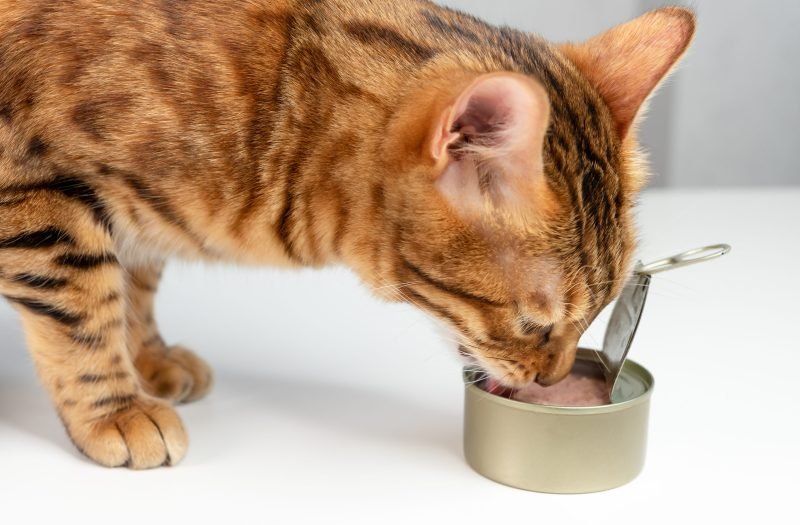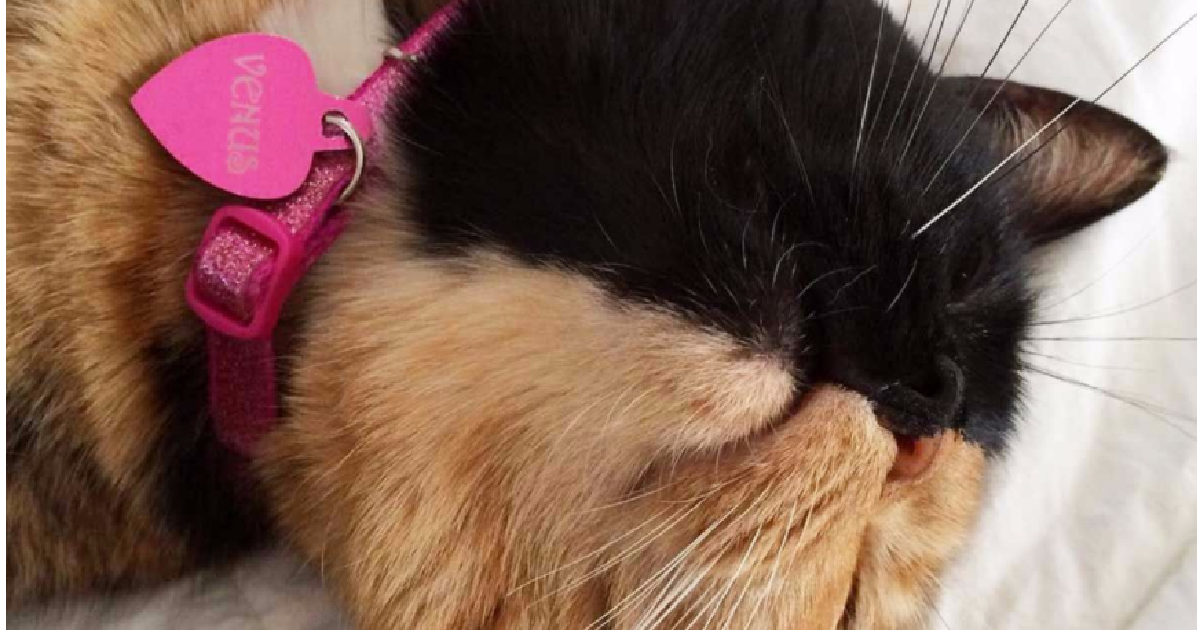Cats and tuna go together like peas in a pod, so if you see your cat staring at the sandwich on your plate with hungry eyes (especially if he began this activity when no one else was looking), it’s only natural for him to want some. The question is can cats eat tuna? The answer is yes, as with any food you give your pet, should be done in moderation. And there are some things you also need to know first.

Can Cats Eat Tuna?
A certified feline training and behavior consultant with Feline Behavior Solutions, LeeAnna Buis said, “[Tuna] can help stimulate kitty appetites and offers protein, omega-3 fatty acids, potassium, and other important vitamins and minerals.”
It’s true that many cat foods contain tuna. The proteins, vitamins, and minerals in this fish have a lot of benefits for cats including improving eyesight, boosting their immune systems, giving them energy plus contributing to skin health.
Tuna is healthy food for cats, but it’s not perfect and can have some downsides too especially if you feed your cat too much of it.
Tuna can be unhealthy

Tuna is a tasty treat for cats, but it doesn’t have all the nutrients your pet needs and can be high in unsaturated fats. A diet high in unsaturated fats can lead to vitamin E deficiencies in cats. That means tuna isn’t an ideal staple food for them.
Canned tuna in particular can be bad for your cat. In addition to being high in salt, it may also cause an electrolyte imbalance that leads to malfunctions of cells and problems with health issues. Buis said., “It does not supply all of the nutrients your cat needs. Fed in large amounts, it … leaves your cat lacking important nutrients.”
Cats with vitamin E deficiencies are at risk for developing steatitis or yellow fat disease. This condition is caused by inflammation in the fatty tissue, which can affect any cat but usually occurs in young cats and overweight cats. Tuna-flavored cat food will not put your kitty at risk because it usually includes a mix of different types of meat to provide him with the balanced nutrients he needs.
Cats are at risk for several diseases associated with vitamin E deficiency, but yellow fat disease is the most common which is life-threatening to cats.
The best way to keep your cat healthy is by making sure he’s eating a balanced diet and avoiding unsaturated fats. If you notice any of these symptoms below, then it might be time for an intervention:
Steatitis or yellow fat disease symptoms:
•Lethargy
•Fever
•Masses under the skin
•Signs of depression
•Sensitive skin
•Dull coat
•Loss of appetite
Tuna contains mercury
Tuna is a type of fish that has higher levels of mercury than many other types of fish. Feeding too much can be harmful and lead to poisoning, which may cause symptoms such as :
•Loss of balance
•Difficulty walking
•Loss of coordination
•Other neurological issues
Food Allergies
It’s important to watch out for any allergies your cat might have when giving them tuna as a treat. Some cats are allergic and will show symptoms such as:
•Rash
•Kidney problems
•Liver problems
•Itching
•Conjunctivitis
•Pancreas problems
•Hair loss
•Digestive problems
If you think your cat might have an allergy, make sure to get in touch with a vet right away. Cats have an unfortunate tendency to go a little crazy for the tuna, but this can make life more difficult. This can be a problem if your cat won’t eat any food but tuna since it doesn’t have all the nutrients he needs in one meal.
Can cats eat canned tuna?

Canned tuna is better than raw fish for cats. Whether or not you should give your cat tuna is an important decision that needs to be made in consultation with a vet.
Buis explained, “The canning process removes thiaminase, an enzyme found in raw tuna that destroys vitamin B1, which our cats need. Look for canned tuna in spring water. Avoid brine, which is higher in sodium, and oil, which can cause digestive issues. If you’re considering tuna for your cat, it’s best to chat with your veterinarian about how much is too much and whether your cat has any health issues that may be exacerbated by this stinky treat, such as kidney and heart disease.”
Tuna is a great snack for cats, but it shouldn’t make up the bulk of your pet’s diet. A teaspoon here and there will keep him happy (and check with his vet before giving too much).
If you know someone who might like this, please click “Share”!







